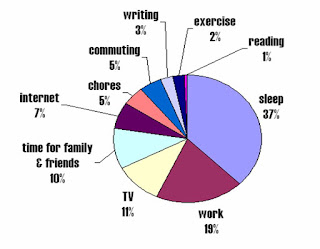Languages of love

It's been some time since we met and since I last wrote - I've been travelling quite a bit! I trust everyone had a meaningful Easter. I'll try to book a date for our next meeting - Changhao has agreed to lead the sharing for the next session. I'll let everyone know in due course.
I attended one of the Family Festival talks at One Raffles Quay yesterday with some of our colleagues (the speaker is one of my pastors) and I thought it might be useful to share what I learned.
As I found out, bringing 3 young, ambitious, single men to a talk about the five languages of love was perhaps a bit dissonant, but still, it's never too early to learn how to appreciate our loved ones in a way that they in turn can appreciate. Which brings me rather neatly to the whole point of the talk, which is that different things speak in different ways to different people. An ambitious young man is likely to snigger at a talk about expressing love to a spouse (as was the case yesterday!). An older person may be cynical about a rah rah motivational speaker. Similarly, what we think is an expression of love may not be appreciated as such by the recipient.
One classic example is the lesson that I, like many husbands I'm sure, have learnt over the years. When my wife had a problem and wanted to talk about it, my instinctive reaction was to offer her a solution and I took great pains to analyze the problem and offer a comprehensive and considered answer. To me, this was a great sacrifice of my time and effort. Yet my efforts were usually not particularly appreciated, leaving both of us frustrated.
Why was this so? Because my wife was not really looking for a solution, but simply for me to hear the problem. Let's face it, what made me think that I was smarter than my wife anyway, that I could offer a solution she couldn't think of herself? Worse, in the course of offering a solution for her, I would often prevent her from talking by saying things like "oh that's not relevant to finding your answer. Let's focus on this other issue instead". Which was completely missing the point of course. But instinct is hard to suppress, and to date, I still have to remind myself about this constantly!
So, back to the family festival talk: what the speaker explained was that there are several ways in which we express our love and appreciation for others:
a. words of encouragement (the simplicity of a compliment is usually proportional to its genuineness)
b. acts of service (which is not the same as duty e.g. picking up your socks!)
c. gift-giving (which is not the same as giving away what you don't need)
d. quality time (which is not the same as merely sitting in the same room)
e. physical touch (a hug or a kiss or holding hands for example)
Most of us have a primary love language i.e. one which we ourselves feel comfortable using, and which in turn speaks most powerfully to us.
The problem is when we insist on speaking our own language rather than the one which our spouses, family or friends use. So we may feel that we are expressing love, for example, by doing things for our respective spouses. But if our spouse's primary love language is words of encouragement, then our effort may be less appreciated than we expect. This is a pity, since we would have expended great effort for little effect, and both sides end up feeling unappreciated.
What to do then? Be aware of others' primary love language/needs. And in the spirit of unconditional love, be prepared to speak that other person's love language without the expectation of reciprocity. Having said that, be open in our communications with those we love, so that they can understand our own needs. Why make them guess?
1 John 4:19-21 says "We love because he first loved us. If anyone says, "I love God," yet hates his brother, he is a liar. For anyone who does not love his brother, whom he has seen, cannot love God, whom he has not seen. And he has given us this command: Whoever loves God must love his brother.
Just think about it, we spend an awful lot of time and effort in the office trying to make our bosses happy. There's nothing wrong with this in itself, as we have a duty to be diligent and skilful in our work. But let's prove ourselves not to be "liars" as 1 John puts it, and make the effort make our family/friends happy today too!
P/S The five love languages framework is based on a book by Gary Chapman, a pastor/marriage counsellor/author. In case you were interested.
I attended one of the Family Festival talks at One Raffles Quay yesterday with some of our colleagues (the speaker is one of my pastors) and I thought it might be useful to share what I learned.
As I found out, bringing 3 young, ambitious, single men to a talk about the five languages of love was perhaps a bit dissonant, but still, it's never too early to learn how to appreciate our loved ones in a way that they in turn can appreciate. Which brings me rather neatly to the whole point of the talk, which is that different things speak in different ways to different people. An ambitious young man is likely to snigger at a talk about expressing love to a spouse (as was the case yesterday!). An older person may be cynical about a rah rah motivational speaker. Similarly, what we think is an expression of love may not be appreciated as such by the recipient.
One classic example is the lesson that I, like many husbands I'm sure, have learnt over the years. When my wife had a problem and wanted to talk about it, my instinctive reaction was to offer her a solution and I took great pains to analyze the problem and offer a comprehensive and considered answer. To me, this was a great sacrifice of my time and effort. Yet my efforts were usually not particularly appreciated, leaving both of us frustrated.
Why was this so? Because my wife was not really looking for a solution, but simply for me to hear the problem. Let's face it, what made me think that I was smarter than my wife anyway, that I could offer a solution she couldn't think of herself? Worse, in the course of offering a solution for her, I would often prevent her from talking by saying things like "oh that's not relevant to finding your answer. Let's focus on this other issue instead". Which was completely missing the point of course. But instinct is hard to suppress, and to date, I still have to remind myself about this constantly!
So, back to the family festival talk: what the speaker explained was that there are several ways in which we express our love and appreciation for others:
a. words of encouragement (the simplicity of a compliment is usually proportional to its genuineness)
b. acts of service (which is not the same as duty e.g. picking up your socks!)
c. gift-giving (which is not the same as giving away what you don't need)
d. quality time (which is not the same as merely sitting in the same room)
e. physical touch (a hug or a kiss or holding hands for example)
Most of us have a primary love language i.e. one which we ourselves feel comfortable using, and which in turn speaks most powerfully to us.
The problem is when we insist on speaking our own language rather than the one which our spouses, family or friends use. So we may feel that we are expressing love, for example, by doing things for our respective spouses. But if our spouse's primary love language is words of encouragement, then our effort may be less appreciated than we expect. This is a pity, since we would have expended great effort for little effect, and both sides end up feeling unappreciated.
What to do then? Be aware of others' primary love language/needs. And in the spirit of unconditional love, be prepared to speak that other person's love language without the expectation of reciprocity. Having said that, be open in our communications with those we love, so that they can understand our own needs. Why make them guess?
1 John 4:19-21 says "We love because he first loved us. If anyone says, "I love God," yet hates his brother, he is a liar. For anyone who does not love his brother, whom he has seen, cannot love God, whom he has not seen. And he has given us this command: Whoever loves God must love his brother.
Just think about it, we spend an awful lot of time and effort in the office trying to make our bosses happy. There's nothing wrong with this in itself, as we have a duty to be diligent and skilful in our work. But let's prove ourselves not to be "liars" as 1 John puts it, and make the effort make our family/friends happy today too!
P/S The five love languages framework is based on a book by Gary Chapman, a pastor/marriage counsellor/author. In case you were interested.



Comments